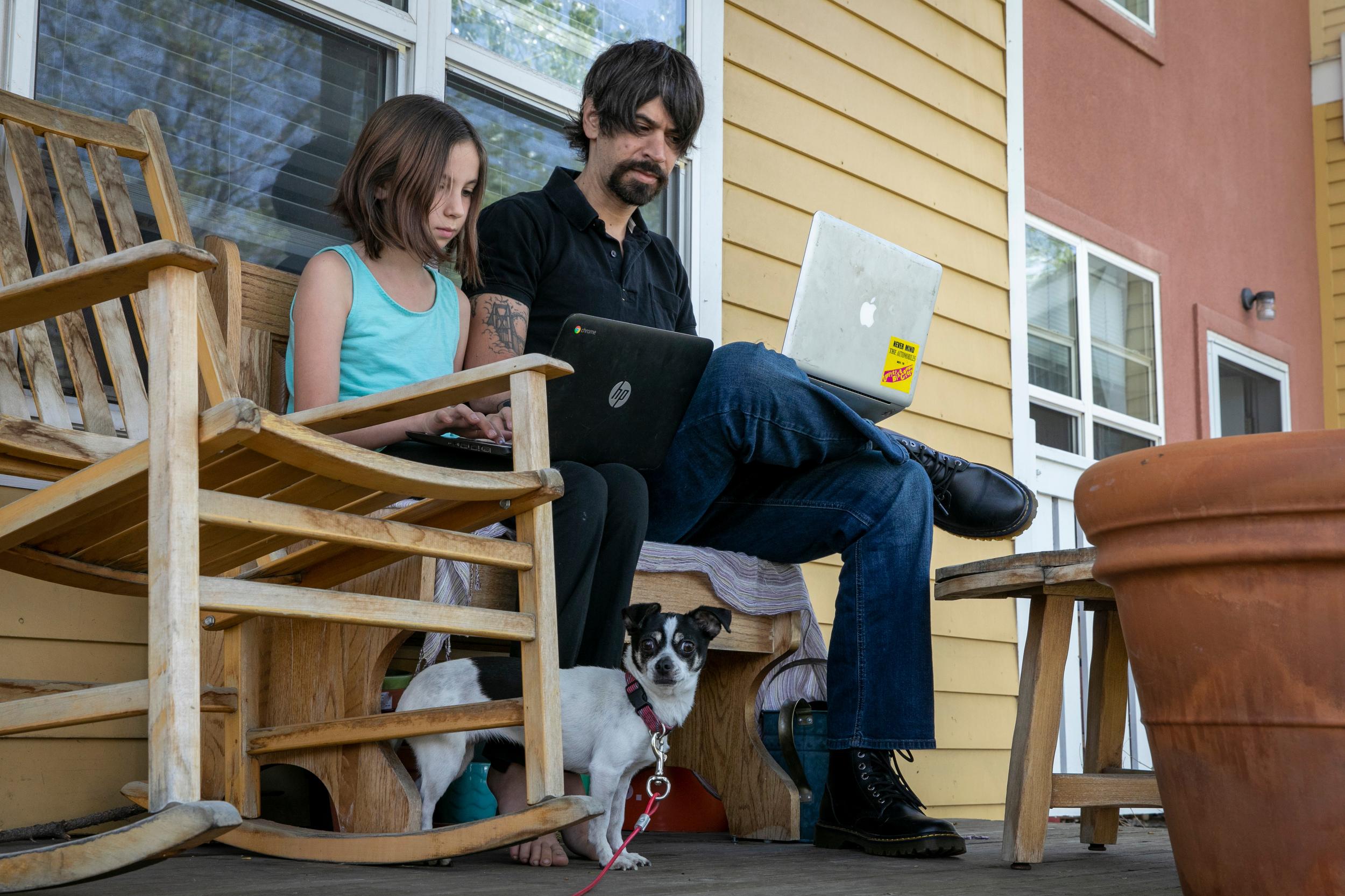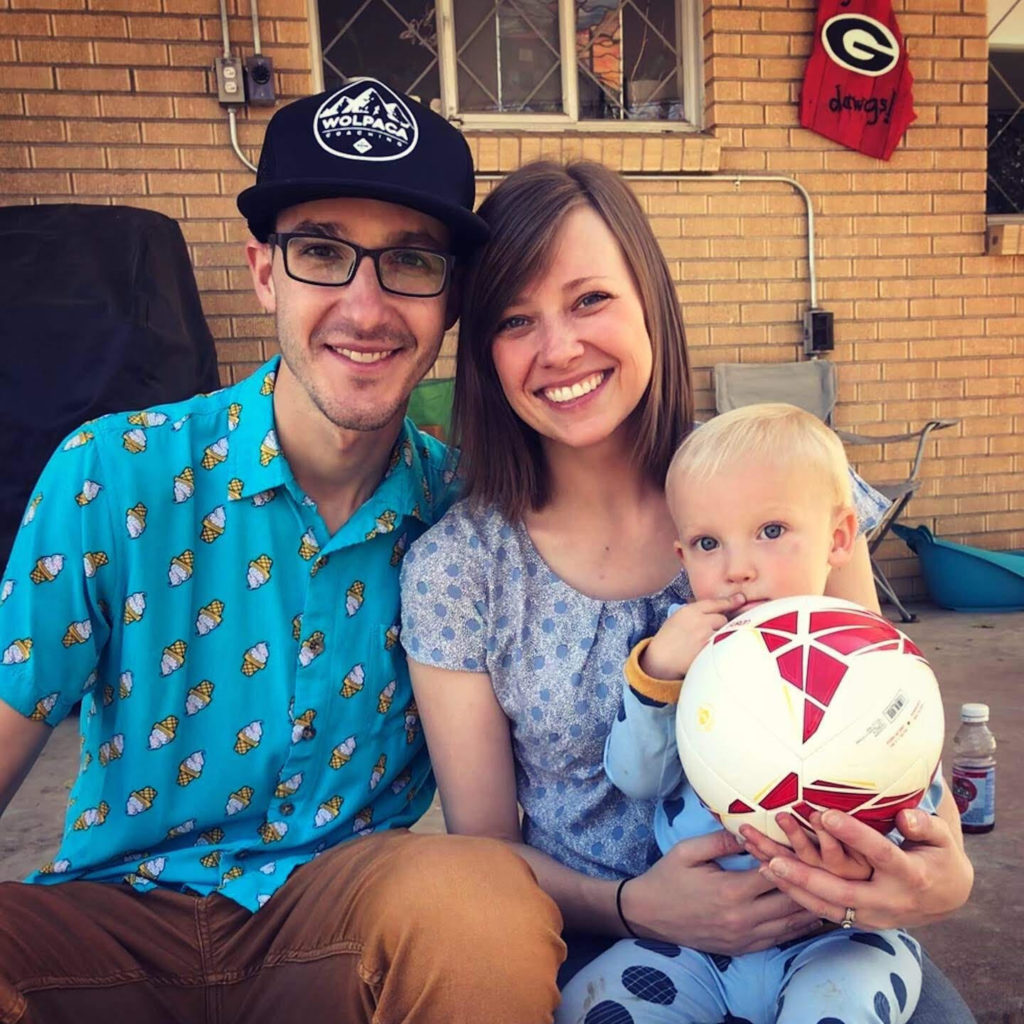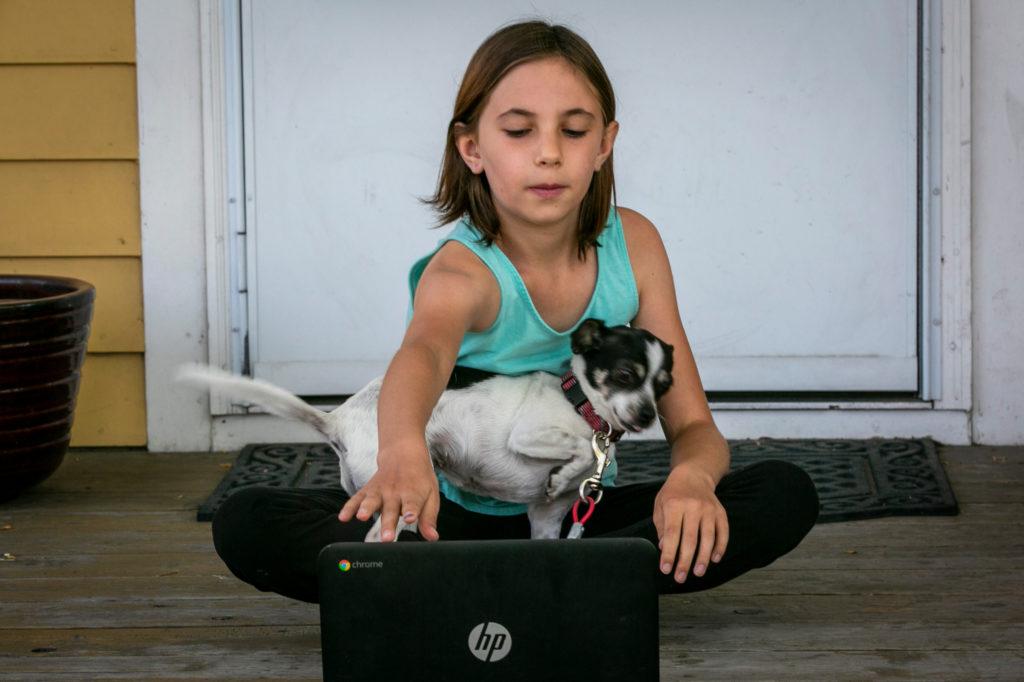
The American economy is built on the idea that children go to school and parents can go out and work. That’s just not the case right now. It certainly hasn’t panned out that way for Laura McLean of Montrose.
“I'm currently in a master's program for library science and landed a position at the Montrose Regional Library as a adult services librarian,” she said.
The new position doubled her salary, a vast improvement for a single mom in a situation she described as “working poor.” Her previous jobs were at the grocery or the local school district. She had tried to make a career jump like this for a long time, and now that it's here there's a big downside.
Whereas her work schedule used to align with her daughters’ schedules, now she has to be in the office every other week, even during the pandemic.
McLean is one of the many parents trying to balance work and child care like never before. All of the school and after-care programs her daughters are normally enrolled in have been closed for the foreseeable future.
Even when McLean is able to work from home, she can’t give her younger daughter enough help with her online school. She’s 14 and has developmental issues with her motor skills and speech.
“I was sitting by her side a lot to help her with her work, which made it very difficult to balance what I needed to do with what she had to do,” McLean said.
Fortunately, McLean’s own parents live nearby and can help. McLean and her mom had a long talk about whether that was wise, given her parents’ advanced age and health issues.
“It’s definitely scary,” she said. “My mom was a cancer survivor and so I really don’t want to put her immune system at risk.”
These kinds of arrangements are crucial assistance for low-income and younger workers to make it through this unprecedented time in the economy and society, said Murat Iyigun, a professor of economics at the University of Colorado Boulder.
“Stating the obvious, this is really once in a lifetime, something we’ve never seen,” Iyigun said in reference to the economic challenges families now face.
“The biggest impact is on people who are in sectors where you need to be there. It’s either a small business or it’s a service sector job, where without that face-to-face interaction, your income is zero. There’s just no way of recouping that. So, unfortunately, the longer this drags on, it’s going to be a further drag on the relative income of lower-educated workers,” Iyigun said.
Women who work and parent are hit especially hard because in most cases they do more of the at-home child care, Iyigun said. Some of his colleagues wanted to quantify the impact on working mothers right now, including those who are able to do their jobs from home, and so they measured the productivity of female economists as an early test case.
“They immediately found evidence that women economists productivity, as measured by new working papers or publications, has dramatically decreased relative to their male counterparts.”
As for McLean, she’s braced to see what decisions are made about school in the fall.
“I’m not wanting to burden my parents any more than I already have, and will continue to have to do so through the summer most likely, because all of the summer programs and camps and things that I had Cara registered for, most of them have been canceled.”
Other parents, meanwhile, still await state regulations for summer camps, which are expected later in May.
Child care programs face extreme financial pressures right now.
Even the summer programs that are able to open will look very different than normal. First, they might not be able to operate in school buildings as they ordinarily would. Also, current state health guidelines limit programs to 10 children in a group.
“Under normal circumstances, school-aged child care can serve up to 30 children in one group with two caregivers,” said Erin Mewhinney, the director of early care and learning at the Colorado Department of Human Services.
“So essentially what we've done for the school-aged child care, to comply with the public health orders, is that that is now one third the group size that they typically can have.”
The result is fewer spots to help families like McLean’s. Some parents who want to go back to work as the economy reopens may not have that choice. It also makes for a delicate financial balancing act for child care providers. The 10-child limit applies to daycares in general, and that has helped put an industry that already operates on thin margins in even tighter financial straits.
“We've explicitly been told by the owners of our child care facility that they are concerned about the financial sustainability of their system at the current limits,” said John Farnsworth, a parent in the Front Range town of Lafayette. “They are projecting that if the health department's guidelines extend into the fall, they will not be able to be financially solvent with those limits in place.”
Financial models for child care centers are usually built on more kids in a class. Now, “They still need to have just as many staff, but the number of children that they can have in their care has been reduced,” Mewhinney said.
The 10-child limit may even mean they have to bring on more staff than usual, said Diane Price, the president and CEO of Early Connections Learning Centers in Colorado Springs. Normally, teachers and kids float between classrooms based on kids’ arrival times, she explained. That’s not possible now, so Price will need to figure out how to keep kids in age-appropriate classrooms with their normal teachers, which is best for child development, and without compromising people’s health.
“We have two people that come in at 6:30 a.m. Now I would need six people because I have six classrooms in a particular site,” she said. Health is the first priority, but, “It's hard to balance that with an already fragile business model that struggles to find teachers, and pay them well.”
Price’s organization stayed open through the pandemic to serve essential workers. While they had to staff for that and pay administrative costs, they chose not to charge other parents to hold onto their spots.
“Child care is like any small business. They're all struggling right now,” Mewhinney said.
Early Connections just signed paperwork for a federal Paycheck Protection Program loan. Price said that gives her confidence for the rest of 2020.
On top of the financial concerns, Price also had to scramble to buy digital thermometers — which are back ordered online — and figure out how to get parents to actually wear masks when they drop their kids off. At another center, Mile High Early Learning in Denver, Pamela Harris has had to order masks for her staff, a task as tough for Harris as it has been for everyone else in the state.
“It’s great now that we have a month’s supply of face masks, but we’re unclear about what that second month is going to look like,” Harris said.

Even if child care centers can open and stay safe, some parents are not ready to send kids back.
Health care consultant Claire Cruse has a two-and-a-half-year-old and is expecting another child soon. Both she and her husband work from home now thanks to the pandemic and they’ve shifted their hours to squeeze it all in.
“What's stressful for both of us I think is that it's like 12 hours a day from our son waking up to our son going to sleep, we're on in some capacity, there's no real breaks.”
Even though their son’s daycare has reopened, Cruse worries what the exposure would mean for her pregnancy. They will keep him at home for now. It was a decision made before outbreaks were identified at two child care facilities in metro Denver.
“I’m actually surprised it hasn’t happened sooner, I guess, just because daycares tend to be more or less germ factories,” she said. “Our toddler is always coming home with some sort of runny nose or fever.”
When it comes to the coronavirus, Cruse “always thought it was a little too good to be true that children didn't have the same reaction as adults did.”
Those nagging doubts are common. When Adam Perry thought about sending his daughter Sidney to camp or school, he said to himself: “I’m just not ready for that.”

“I'm not going to send my kid to school because I don't really see a report from an expert that says, ‘OK, this thing is going away. It's time to open.’”
Perry cares for Sidney four days a week and they split the workdays between Perry’s house and his office. He’s a paralegal for a veterans disability law office and some work can only be done on-site. Even though Sidney is quiet and productive with schoolwork and reading, it’s a big stress for Perry. He wonders if he is giving her enough attention, and helping her experience enough of a childhood.
They have managed to make their own fun, like when Perry has to drop off the law group’s mail.
“She waits outside the post office and she times me, and the other day, I have my record, it was 16 seconds.”
Still, he said he’s “overwhelmed by the work and the pandemic and the news and the parenting” and like many antsy Coloradans, he’s ready to get outside and embrace spring.
While they mostly stay inside except for some socially-distanced bike rides, their hands are about to be forced. Perry’s partner, who teaches preschool, is about to be called back to work for one of the summer camps that will be open.
“If she is exposed then my kid is exposed. If my kid is exposed then her mom is exposed,” he said. “That affects everything in your circle.”
All of this comes just as Colorado’s governor has tried to get more funding for early childhood education.
In his first term, Gov. Jared Polis set his sights set on universal access to preschool for four-year-olds (even if not for free). A booming state economy and his ability to pull off universal kindergarten made it look like it might even be possible. But those plans cannot possibly go forward now given the massive hole the pandemic has blown in the state budget.
Instead, Mewhinney, the state early care director, hoped a different kind of large-scale change could come out of the pandemic. There is more interest than ever from business leaders in supporting child care, she said. It is her hope that they will decide it’s worth it to help pay for child care for their employees, the same way they help provide health insurance.
“I actually have a positive long term outlook on it,” she said. “We just have to survive the short term first.”
Editor's Note: An earlier version of this story misspelled Sidney Perry's first name.








